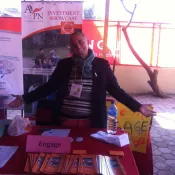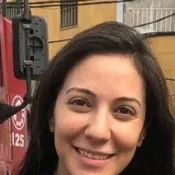How can volunteering help build equal and inclusive societies?
About the discussion group
The climate crises, the COVID-19 pandemic, persistent poverty, increasing unemployment – these and many other social issues continue to widen inequalities within communities. For equal and inclusive societies to become a reality, it is important to consider at the decision-making table and how the voices of the most marginalized are heard. What is the role of volunteerism in creating societies built on equality and inclusion? This is the key question that frames the 2022 State of the World’s Volunteerism Report (SWVR).
As we anticipate the release of the 2022 SWVR on December 2, we invite volunteers, volunteer-involving organisations, government officials, NGOs and other stakeholders to share insights and best practice examples on how models of people-state relationships (deliberative governance, co-production and social innovation) can help volunteers create a society that benefits all. We also invite you to share with us the challenges you faced and how you addressed them. This discussion builds on previous conversations on the role of volunteerism in shaping an inclusive 21st century social contract. Some questions to frame this discussion:
- What spaces and strategies are available that bring together people’s and states’ diverse interests and aspirations towards deliberative decision-making processes?
- What processes exist that engage volunteers in defining and prioritising social challenges and shaping responses to these challenges in collaboration with state authorities?
- How can volunteer connections facilitate, generate and promote the diffusion of new ideas and practices especially at the grassroots level towards accelerating the achievement of the SDGs?


In reply to (No subject) by Jurgen Grotz
In reply to (No subject) by carolewhitney

In reply to (No subject) by jmuthumb

In reply to (No subject) by Jurgen Grotz

In reply to (No subject) by simone

Then and with this then I wrap up, there is a focus on civic engagement that is instrumental for this idea of new social contract. Volunteerism is one of the best expressions of such civic engagement and it is all about finding ways to make it easier for people to participate, to be involved. At the end of the day the traditional concept of volunteering as doing something for others, can be a vehicle to different type of actions that bring a person closer and actually, eventually, part of the policy making seen as a duty of active citizenship. This is a concept that I had already elaborated in this knowledge community so I stop here.

In reply to (No subject) by simone
First, I really like your idea here about framing volunteering as a leadership journey. Too often volunteers are seen as 'followers' or 'implementers' of ideas developed by someone (often more 'powerful') somewhere else! However, we are seeing (and I'm sure you can think of many examples from your work in Nepal) that volunteers are also leaders, advocates, frontliners, etc - drawing from a host of organising, campaigning, collaboration skills. This links to your earlier point re thinking of volunteering (or in this sense of the 'volunteer') in terms of a continuum with varying degrees and characteristics.
Second, there have been continuing conversations on how to support marginalised volunteers to participate actively. As you say, some who have willingness to volunteer cannot do so because of specific barriers they face - lack of resource, disabilities, etc. Recognising this means that we need to be careful in thinking about volunteering as an equaliser and really reflect on 'under which circumstances' can volunteerism become a pathway for inclusion and equality.
This year's SWVR looks at some of these issues in depth, particularly how to bring forward the voices of the most marginalised in key decision making processes. It would be great to hear from you, Simo and other colleagues in this Forum of any specific examples in your own contexts that make this happen.

In reply to (No subject) by chrismillora


Discussion Moderators


Discussion Members






How to join
- Create a user account here
- Once your account has been activated, log in here (Please make sure to check your spam).
- Then go this discussion forum
- Select the second tab, 'Discussion' to leave a comment and engage with other participants.
- For any technical issues, contact us here

In many communities around the world, we see that inequalities continue to widen. The gap between the rich and the poor is stretched. The current COVID crisis and the climate emergency have further enhanced these divisions. The relationship between people and state authorities and institutions are being reconfigured in light of these challenges. New ways of working between people and states are also emerging such as deliberative governance mechanisms, co-production and social innovation. What can volunteerism offer in building societies founded on equity and inclusion? Particularly, how can volunteerism help develop a more inclusive relationship between volunteers and states?
We welcome your ideas, comments and experiences and we invite you to also post questions for others. Let us start the conversation as we await this year's SWVR!